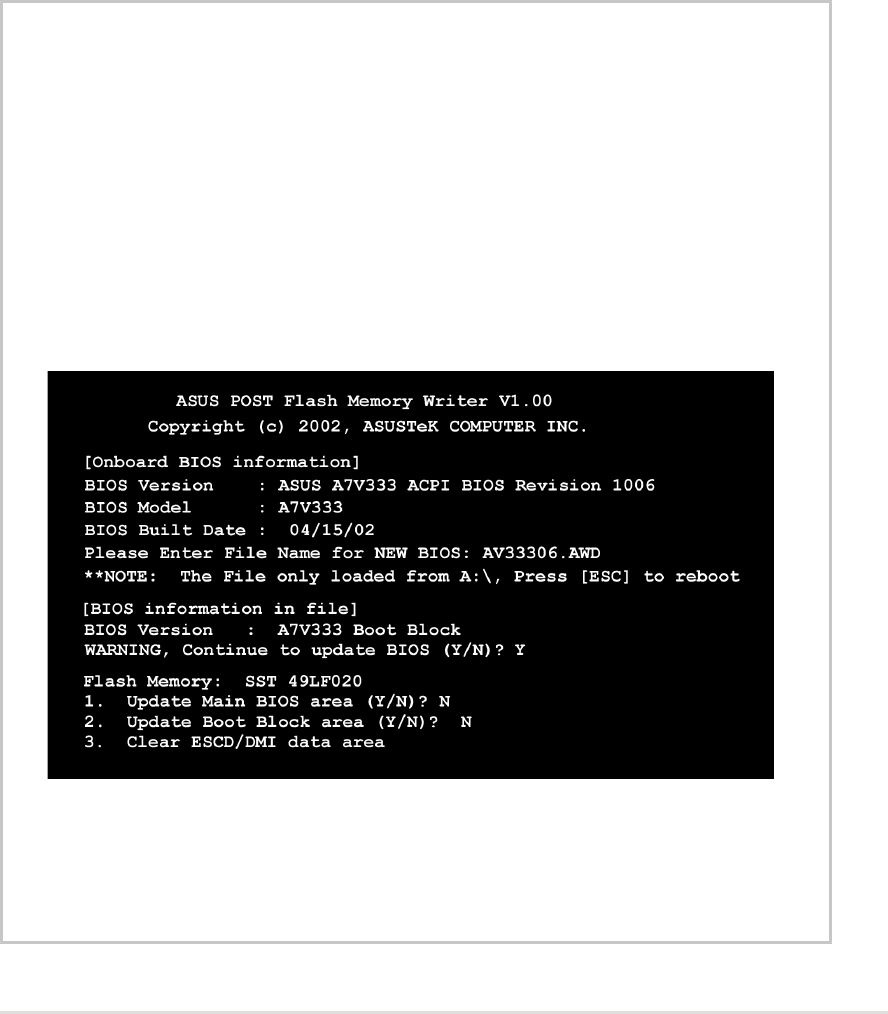
ASUS A7V333 motherboard user guide
49
4.1 Managing and updating your BIOS
4.1.1 Using the computer system for the first time
It is recommended that you save a copy of the original motherboard BIOS
along with a Flash Memory Writer utility (AFLASH.EXE) to a bootable floppy
disk in case you need to reinstall the BIOS later. AFLASH.EXE is a Flash
Memory Writer utility that updates the BIOS by uploading a new BIOS file to
the programmable flash ROM on the motherboard. This file works only in
DOS mode. To determine the BIOS version of your motherboard, check the
last four numbers of the code displayed on the upper left-hand corner of your
screen during bootup. Larger numbers represent a newer BIOS file. Proceed
to the next page for more information on using AFLASH from a floppy disk.
ASUS POST Flash Utility
An alternative utility for flashing a new BIOS is now available: ASUS POST
Flash; press <ALT> <F2> just after the memory test during boot-up. ASUS
POST Flash functions much like regular AFLASH, but no floppy disk is
required: ASUS POST Flash is built-in to the existing BIOS firmware of
new BIOS editions. First, visit the ASUS website to download the BIOS
that you want to copy it to a floppy disk. To better protect the system,
download both the new version of the BIOS and the BIOS version presently
in use, then copy them to a floppy disk in case you need to reflash the
original BIOS, or if the new one does not function.
To flash a new BIOS using POST Flash Utility, type the filename of the
new BIOS file at the prompt and press <enter>. Then, select the type of
update and select (Y). The new BIOS is recorded into the firmware
memory. Press <ESC> to reboot.


















